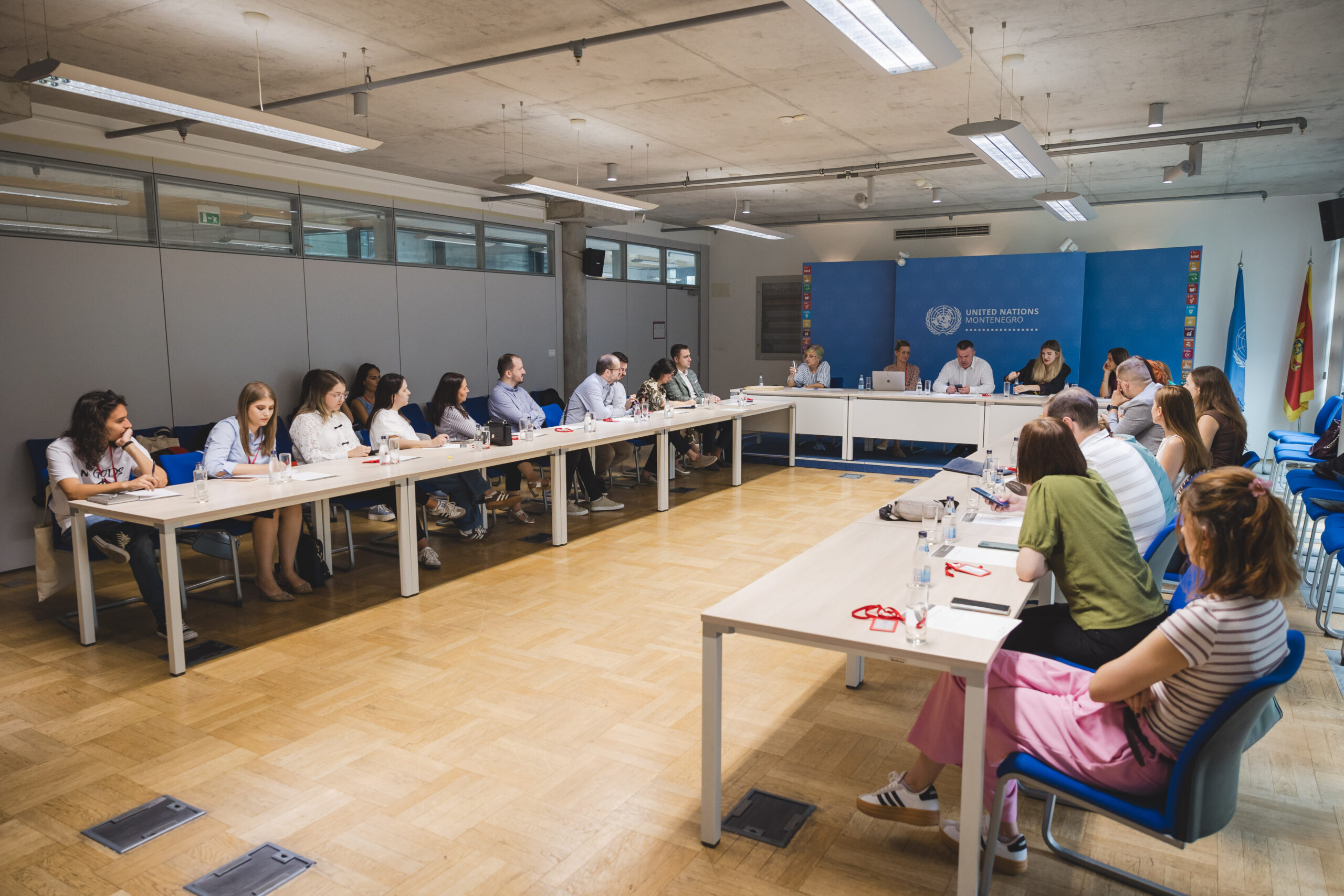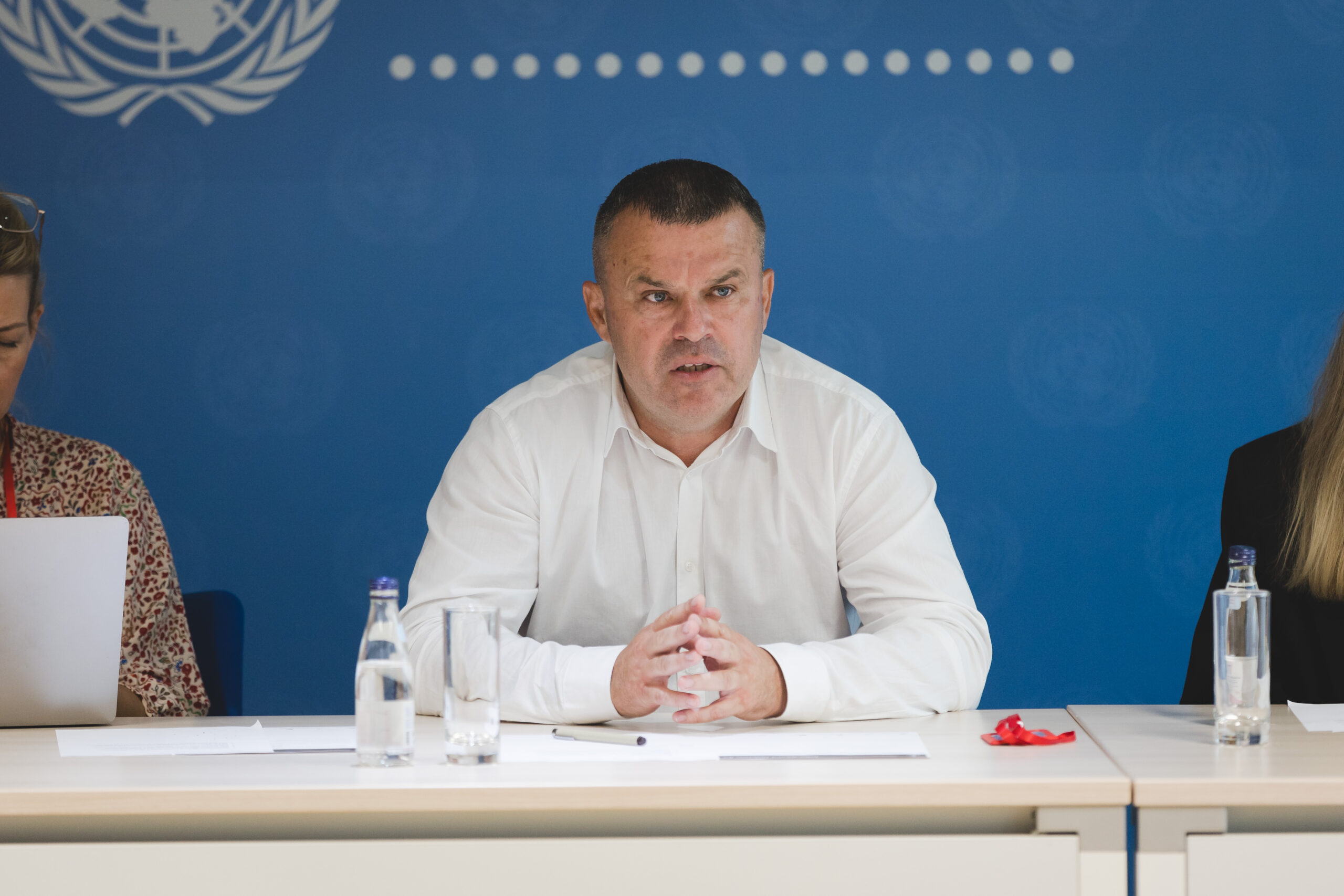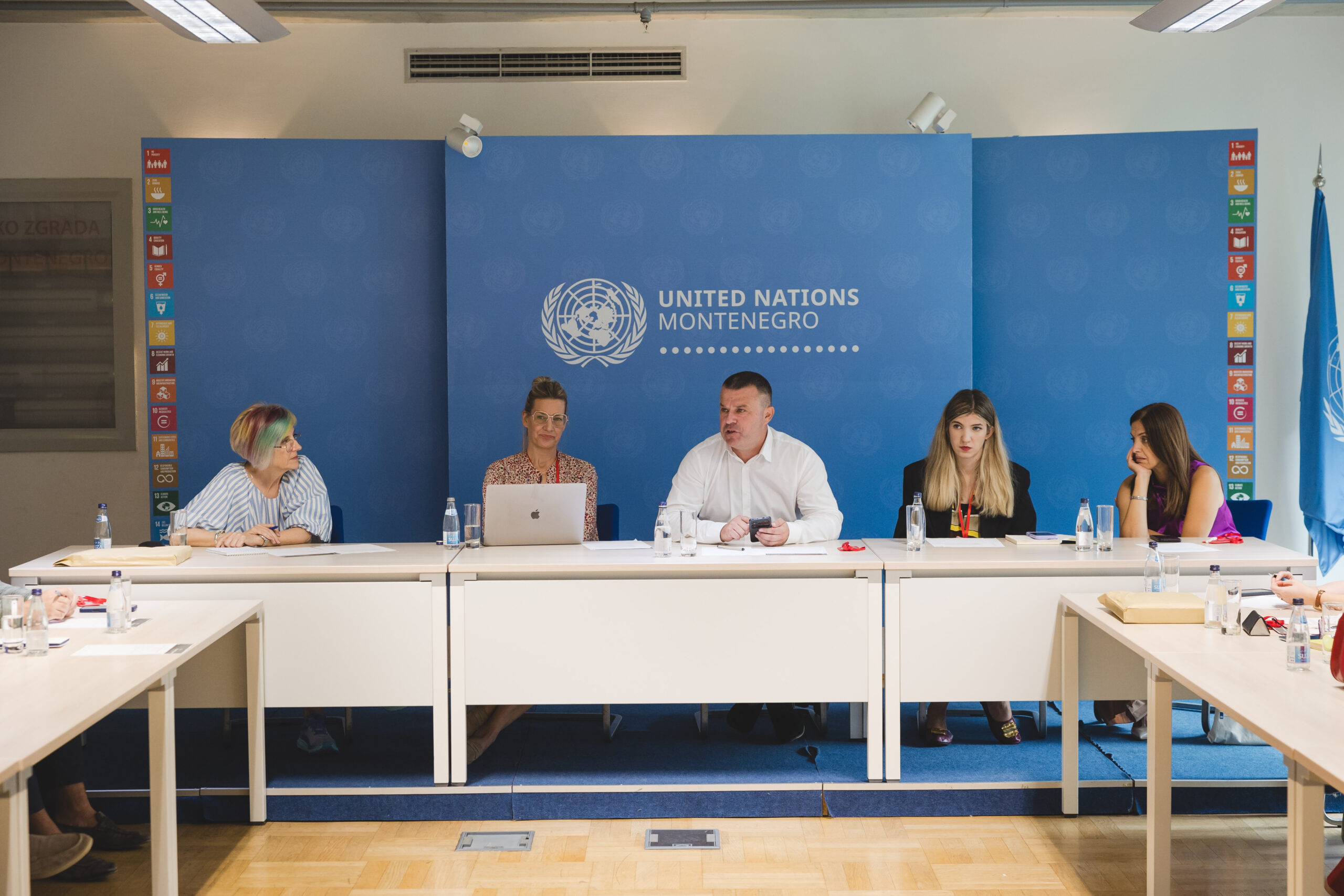Civic education as a compulsory subject should become a stronger tool for fostering democratic culture, critical thinking, and active citizenship among young people, was the key message from the roundtable organized today in Podgorica by the Centre for Civic Education (CCE), in partnership with Human Rights Action (HRA) and the Centre for Women and Peace Education ANIMA.
The event gathered representatives of the civil sector working with youth, who discussed ways to contribute to systemic changes in this area and put forward recommendations to improve the quality, relevance, and institutional positioning of civic education. These recommendations will be compiled into an action document and presented to decision-makers to strengthen the role of civic education in the formal education system.

Workshop moderator, professor Neđeljko Đurović, emphasized the consensus among participants that civic education must be a mandatory subject in the formal system, as it is essential for developing civic, democratic, social, and ecological values among students, as well as for encouraging autonomous, responsible, and critical behaviour. He also highlighted the need for media literacy to become a separate educational programme.
“It was proposed that the subject content include areas such as human rights, participatory democracy, sociology and history of religion, sexual and health education, financial literacy, and business culture, with special emphasis on anti-fascism, political-critical thinking, and identity culture,” he added, stressing that civic education must be interactive and innovative, with the involvement of parents and relevant institutions at both local and national levels. “It was also suggested that young people, through volunteering and other activities, develop practical skills and prepare for future civic activism,” he explained.

“The need for introducing mandatory civic education is unquestionable and crucial for raising our young people into free-thinking, responsible citizens in the true sense of the word. Otherwise, we risk that students will not choose it, that they may be advised to avoid it, or that it will, in practice, be reduced to a subject handed to teachers merely to fill their teaching quota,” said Aida Perović, Executive Director of NGO PRIMA, one of the participants.
“It is important that we have agreed that civic education must be compulsory and based on values that educators should nurture together with children and parents, in cooperation with other experts. The curriculum must be developed on modern foundations, not outdated concepts – it should be innovative and engaging, encourage critical thinking instead of rote memorization, and integrate practice as an essential part of teaching,” said Dušan Pajović, a civic activist and participant in the event.

“Today’s roundtable gave us additional motivation to advocate for restoring civic education to the status of a regular subject. Strengthened by new insights and the support of colleagues, we will work even more decisively to ensure that civic education becomes an integral part of the formal education system”, stated Martina Markolović, HRA office coordinator.
“The strong support of parents in focus groups, along with the clear message from civil society organizations at this roundtable, shows that there is broad social consensus on the importance of civic education. These recommendations are valuable because they confirm that teaching must not remain purely theoretical but should be practical and closely connected to young people’s lives, empowering them to become critical-thinking and active citizens. These findings fully align with the views of children and youth, according to UNICEF’s survey last year, as many as 70% of them believe that civic education should be mandatory for all in the education system,” emphasized Sara Čabarkapa, CCE’s Active Citizenship Programme Coordinator.
The roundtable is part of the project “Enhancing Education for Civic and Human Rights: Educational Reforms for a Stronger Democracy”, within the programme “Strengthening Citizens’ Trust in Institutions and Building Resilient Communities,” led by UNDP, UNICEF, and UNESCO, in cooperation with the Government of Montenegro. The project is funded by the UN Peacebuilding Fund.
Alma Novalić, Programme Assistant
